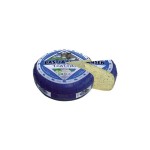Processing side streams to full-quality human food, that would be the ultimate people, planet and profit project. Veggiefiber does the trick; products with these fibres will gradually come to the market.

Veggiefiber is a new project of the Provalor group. This SME, winner of the Dutch 2006 Food Valley Award, developed techniques for upgrading side streams from Dutch horticulture. Upgrading even to human food, to products that comply with all food regulations. With support of an SBIR grant of AgentschapNl.
Composted just for aesthetic reasons
‘Healthy nutrition or compost heap’, the company called its 2006 winning project. Dutch horticulture for instance has important side streams: 42 000 tons annually. In the Potatoes, Vegetables and Fruit sector almost half of the production is composted: 50% of potatoes and other root crops, 45% of vegetables and fruit, and 33% of wheat. Many products are merely composted for aesthetic reasons. Provalor has developed production processes for upgrading such side streams. One of their products is Veggiefiber, consisting of non-soluble vegetal fibres for use in food products.

Piet Nell, Provalor’s project manager, sums up his products’ advantages. They are new and natural, they are sold half-wet, a condition in which they can easily absorb water, they contain many fibres and hence few calories, they produce a satiated feeling and therefore could be an instrument in fighting obesity and intestinal diseases. They are sold as a paste and therefore can be processed easily, and they are sold in HPP (i.e. sterile) packaging. They are already used in products like sauces, cheese, meats and sausages, and snacks. Veggiefibers now sold on the market include those on the basis of root, red beet and cucumber; varieties on the basis of red, orange, yellow and green paprika, and of tomato, will soon be available. The food industry has discovered Veggiefiber and will soon use it in products sold in supermarkets.

Meaty bite
Veggiefiber can also be used in meat substitutes, and is sold as such under the name of ProViand. This provides for a good structure and a meaty bite. ProViand is rich in proteins and low in fat and salt. It is produced from regionally grown vegetables, does not contain any soy, and is free from gluten and E-numbers. ProViand BV claims that producing ProViand saves 95% of water use in comparison to meat production, and that its CO2 footprint is just 10% of that of meat.
Piet Nell stresses that the SBIR subsidy has helped Provalor a lot in this development process. The subsidy scheme lent him much flexibility and room for entrepreneurship, allowing him to tune his project to market demand. An ideal scheme for an SME. But precisely this scheme has been discontinued.
